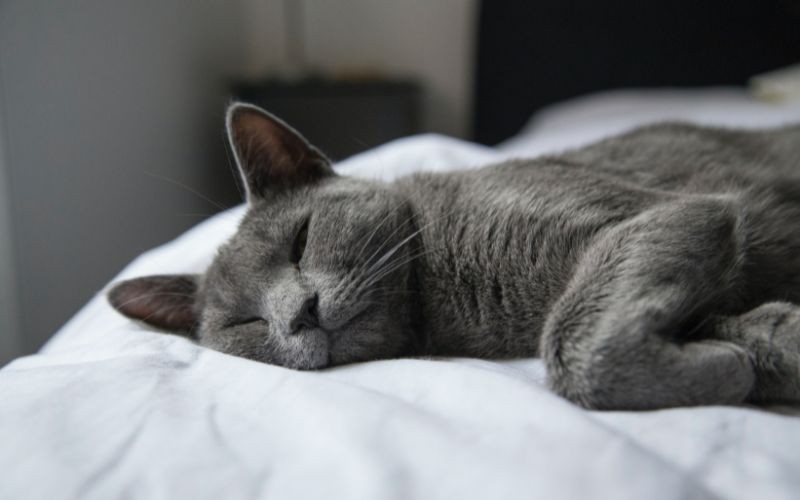
Why is Your Cat Vomiting?
In this article, we'll explore common reasons for cat vomiting and provide guidance on when it's important to reach out for professional assistance.Recognizing regurgitation or vomiting
First, it's important to differentiate between regurgitation and vomiting as they have different underlying causes.
Regurgitation is a passive process where undigested food or liquid is brought up without any associated abdominal effort.
It appears as undigested food and may have a cylindrical shape. This tends to appear shortly after a meal and may be caused for eating a meal too quickly.
Vomiting is a more complex process involving the forceful expulsion of stomach contents through the mouth.
Unlike regurgitation, vomiting requires active abdominal contractions and is often accompanied by heaving or retching.
The expelled material can vary in appearance and consistency. It may include partially digested food, stomach acids, bile, or other fluids.
Common Reasons for Cat Vomiting
As a rule of a thumb, you shouldn’t be alarmed if the pet is vomiting occasionally and is not accompanied by other symptoms such as weight loss or is not impacting its overall mood.
Among the most common reasons for these isolated occurrences are:
- Dietary Indiscretion: consuming inappropriate foods that they can’t properly digest (such as grass) can cause upset stomachs and thus vomiting. To help avoid these occurrences try maintaining a safe environment and a consistent, nutritious diet to prevent dietary indiscretions.
- Hairballs: Cats' grooming habits can lead to hairball formation in their stomachs, causing vomiting. Regular grooming and a dedicated hairball management diet can help prevent this issue.
For more information on Hairball management read the dedicated article here
- Food Intolerance or Allergies: Vomiting and other gastrointestinal issues, can be a sign of adverse food reactions. Our experts can guide you in creating a tailored diet to address these concerns.
If you still have some concerns after these isolated occurrences, and not sure if you should seek Vet advice, remember to download the Farmina Genius APP and reach out to your Farmina Genius Consultant. Share background and images of the case to get important advice on the best course of action to take and to adjust your cat's diet accordingly.
Symptoms to be concerned about
While isolated episodes of regurgitation or vomiting may not be a cause for immediate worry, certain symptoms should prompt you to seek veterinary attention:
- Frequent and Persistent Vomiting: If your cat vomits frequently or the vomiting persists for an extended period. This condition can lead to dehydration and nutritional deficiencies.
- Additional Symptoms: If your cat experiences loss of appetite, diarrhea, or changes in mood along with vomiting (even if isolated case). These symptoms may indicate an underlying medical condition that requires professional diagnosis and treatment.
Understanding and monitoring your cat’s vomiting is essential for its well-being. Preventive measures, timely veterinary care, and advice from Farmina consultants can help manage this issue. Ensure your feline friend enjoys a healthy, vomit-free life with the support of experts and proper care.
Manage your cat's vomiting with our nutritious ND Quinoa Diet (Digestion and Hairball formulas) —guaranteeing better health for your furry friend in every bite.
Discover N&D Quinoa

